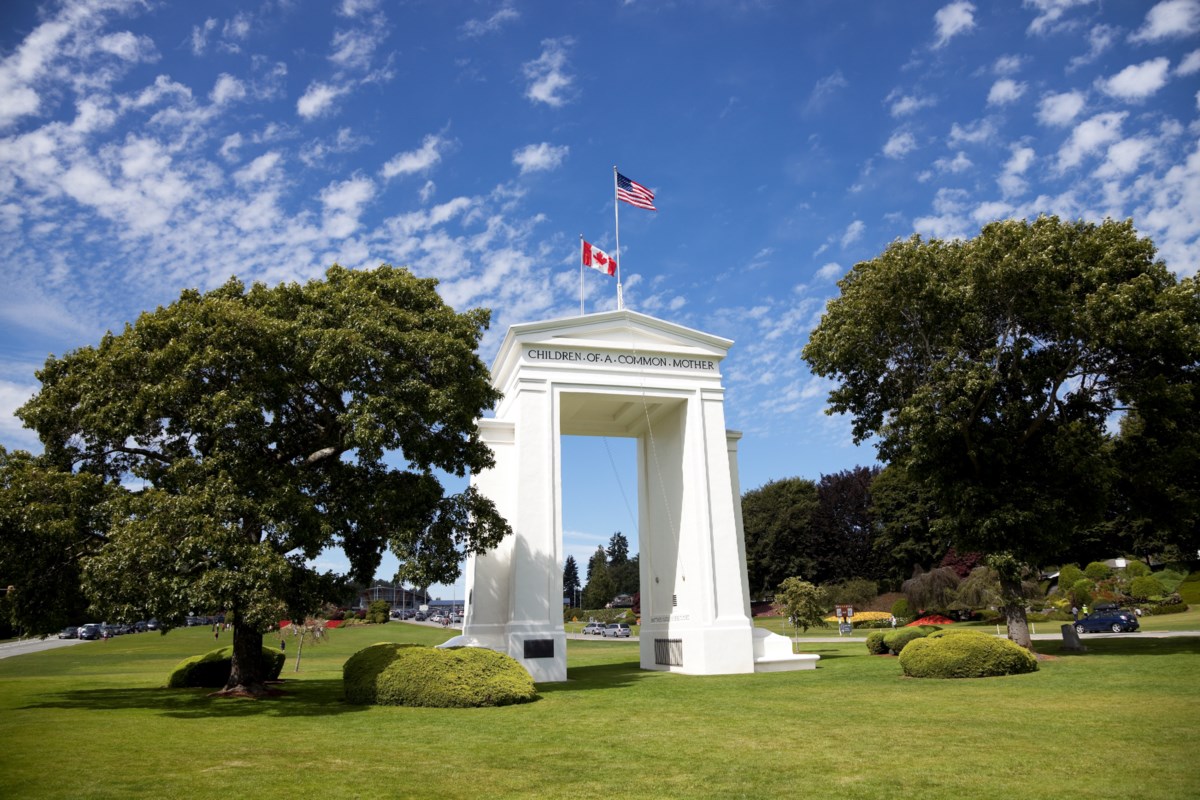The downfall of one of Britain's most powerful dynasties: How reckless spending, debauchery and bigamy brought down the House of Montagu

The downfall of one of Britain's most powerful dynasties: How reckless spending, debauchery and bigamy brought down the House of Montagu The Fall of the House of Montagu by Robert Wainwright is released on May 1 READ MORE: Bombshell new Titanic book uncovers chilling true story of Captain's final moments that weren't in the movie... it changes everything By MARIA CHIORANDO FOR MAILONLINE Published: 13:16 BST, 27 April 2025 | Updated: 13:17 BST, 27 April 2025 They were one of the UK's richest and most powerful families for over a century but, until now, many Britons have likely never even heard of the Montagu dynasty. The dukedom, created in 1719 by King George I for Charles Montagu who became the Duke of Manchster, is said to have 'fallen' in 2002 when its final member to sit in the House of Lords died, with the family, brought down by decades of debauchery and financial instability. Among the ills plaguing the dukedom were bigamy, illicit affairs, reckless spending and even more reckless driving - resulting in several serious accidents. Now, the tale of how the wealthy family frittered away its fortune has been documented in a book, The Fall of the House of Montagu: Dukedom, Debauchery and the Demise of a Dynasty, by Robert Wainwright. The book explains that Dukes are the most senior title in Britain's 'creaking feudal system of nobility', above the titles of marquesses, earls, viscounts and barons. Of the 30 dukedoms in the UK (six of which were held by the Royal Family), the Duke of Manchester was considered the 18th most senior, according to Burke’s Peerage and Debrett’s. For nearly two centuries, the House of Montagu enjoyed its position as one of the most powerful families in the UK - but by 1920s it had been crippled by the shoddy financial decisions of its charismatic yet reckless heir, Viscount 'Mandy' Mandeville. Wainwright's book is largely focused on the final generation of Montagus who lived in the family seat, Kimbolton in Cambridgeshire - Mandy and his Australian wife Nell. A selection of photographs from Mandy and Nell's wedding. They met in 1926 in Sri Lanka and tied the knot a few months later Nell and Mandy (pictured) enjoyed a marriage which was some four decades long, unlike the unsuccessful unions of Mandy's father and grandfather Mandy, born Alexander George Francis Drogo Montagu in 1902, was the son of the ninth Duke of Manchester. His birth was celebrated with church bells ringing throughout England and Ireland and the then Queen of England, agreed to be his godmother. His grandfather bought Kylemore Castle in Connemara, County Galway, Ireland, to mark his birth. It was the dynasty's third castle, whose portfolio included the family seat - Kimbolton in Cambridgeshire - that had been in the possession of the earls and dukes of Manchester for three centuries. Mandy's grandmother Consuelo Yznaga - the Cuban-American heiress - brought with her a dowry worth $6 million when she wed George Victor Montagu, the 8th Duke of Manchester, in 1876. Meanwhile Mandy's mother Helena Keith-Falconer, from Cincinnati, also injected a large sum of money into the family coffers. However, their husbands had frittered away substantial amounts of cash. Helena wed Mandy's father, William Montagu, in 1900, just a year before the birth of their first child Mary (known as Alice) in 1901, and two years before Mandy's arrival. They would have two more children - Edward in 1906 and Ellen (known as Louise) in 1908. The marriage fell apart, and the couple was estranged for much of their children's upbringings - described by Wainwright as 'short on love and attention'. Mandy himself recalled how his father would beat him. Mandy (aka Alexander George Francis Drogo Montagu) is pictured while out hunting with his dog Despite his difficult childhood, Mandy showed promise in both academia and athletics, attending Eton then Cambridge University. He dropped out of the latter aged 18, to enrol in the Royal Naval College. Among his cohort was Prince George - the fourth son of King George V - with whom Mandy would become good friends. Commissioned a year later as a mid-shipman aboard HMS Lowestoft, Mandy was promoted to sub lieutenant the following year. With another promotion seemingly just months away by the time he was almost 21 (in 1923), Mandy unexpectedly took extended leave, telling his superiors he was heading to Canada in search of gold. He and his father - who was trying to establish a goldmine in Ontario - tried in vain to make progress at finding the precious metal, but after struggling for several months, the older Montagu returned home - 'leaving a line of angry creditors behind him'. Meanwhile, Mandy spent some months in the US before reporting back to Admiralty House in early 1924, and being sent to the HMS Dryad in Portsmouth - 'home to the Royal Navy’s warfare school for torpedo and gunnery courses' - preparing him for his next promotion. His future course was determined the following year, when he was commissioned to join the HMS Cairo. A year later, in 1926, Mandy met glamorous Australian socialite Nell Stead in Sri Lanka. Her trip to the country came not long after the death of her mother Lilian, who had succumbed to cancer. Mandy and Nell are pictured with their dog Biscuit. The photograph is believed to date back to 1927 Nell (pictured, left), wearing an eyepatch, is photographed alongside some American friends in an undated snap Writing in her diary on 23 May 1926, Nell said: 'Mother died today.' The simple message suggested that the young woman had been facing with the reality of her mother's illness for some time. Following her mother's passing, her father, Sidney Stead, had decided to send Nell and her sister Erin to Sri Lanka. While she had long given up on the idea of finding her husband, she would meet Mandy by the pool in a hotel, and the two tied the knot a few months later. Nell came from modest means, when compared to the Montagu's legacy, and despite being a debutante, did not have the same social standing as the women who'd married into the dynasty before her. But unlike previous Montagu marriages, the pair wed for love, and their union would survive the many challenges that lay ahead. The couple did not immediately move into the Kimbolton Estate, but lived for some time at Park Lodge, an estate house not far from the castle. However, she was a willing to get involved in life in the country town of Kimbolton, and enjoyed a relaxed relationship with the staff. One Montagu tradition Nell did adopt was illegal gambling, for which she was arrested in 1934. This, like many of the problems which beset the family, was self-inflicted. Among them, Wainwright lists the Montagu's arrests, mass hunting, accidents, debts and reckless driving among the wounds which the family imposed on themselves. For example, Mandy, who was known for his loved of motoring, was prone to car accidents. In fact, he was known for them. Among his infamous motoring misadventures, in 1923, he hit a horse and cart. Luckily, while both vehicles were damaged, the men and horse were unharmed. This incident was just one of many - including a collision in 1932 that would see him hospitalised with internal injuries. And the family had been overspending badly: by 1928, Mandy's father William had been personally involved in more than 60 bankruptcy hearings in London alone. He had creditors on both sides of the Atlantic, and despite a generous annual inheritance his mother Consuela had set up for him (£8,000 every year, far more money than the average working man's wage of £100 annually). Mandy (pictured second from left) is photographed during one of the family's mass shooting outings in a photo dated 1936 Nell is pictured petting a koala during her last trip to Australia in 1965. She would pass away the following year Despite this generous sum, William overspent constantly. Among his excesses he reportedly would throw away suits after wearing them once, rather than having them cleaned. Tales of his lavish spending were often published in newspapers, meaning his creditors were able to see how he was frittering away money rather than paying his debts. During one London hearing, creditors were furious when they found out that William had 'paid a doctor £250 to treat him for indigestion'. Furthermore, he splashed out a further £1,000 playing tennis (as prescribed by the doctor as a cure for indigestion) and he bought a new racquet and balls every time he fancied a match. In 1929, Mandy and Nell had their first child, a son they named Sidney, after his maternal grandmother. He had the courtesy title of Baron Kimbolton, and was known as Kim. The child's baptism would show how far the family had fallen in just a few decades: while Mandy's godmother was the Queen, Sidney counted relatives among his godparents. Mandy and Nell were not only affected by self-inflicted problems: they were at the mercy of some difficult outside influences. After Kimbolton Castle was requisitioned during WWII, the subsequent taxation hit them badly. The financial impact eventually meant that it wouldn't be possible for the family to hold onto its seat, and despite Mandy being decorated for his Naval service during the war, and Nell also doing her bit as a volunteer nurse, they would eventually be forced to hold a fire sale of the castle's contents in 1949. Their fire sale saw family heirlooms being sold piecemeal - some for bargain prices, reportedly among them was the 1612 painting Prometheus Bound by the Flemish Baroque artist Peter Paul Rubens. In 1951, they had to sell the property - alongside its acres - to Kimbolton School. The Montagus were not the only dynastic family to face major challenges around this time: as Wainwright's book points out, in England, some 400 grand family homes were demolished between 1945 and 1955, as a result of the postwar depression. After enjoying a life of privileges, Mandy and Nell decided to move from Britain to Kenya, where they could attain cheaper land and labour. The couple had been unable to adapt to social changes and influences, and their inability to change with the times meant their dynasty was unable to survive. Mandy's main income was derived from the trust funds set up by his mother and grandmother. In the early 1960s, Nell discovered she had cancer in her eye. The couple decided to emigrate to America, where she could be treated for the condition, blaming political uncertainty in Kenya for the move. Local news outlets were thrilled that the couple were making San Francisco their new home. Nell died in 1966, with Mandy, Kim and Angus at her bedside. Her death was widely reported, in articles which referred to her 'with the three identities she treasured most' - the Duchess of Manchester; Nell Vere Stead and ‘a native Australian’. The Fall of the House of Montagu: Dukedom, Debauchery and the Demise of a Dynasty (pictured) by Robery Wainwright is published by Allen & Unwin. It will be released on May 1 Her remains were returned to the UK, so she could be laid to rest in the Montagu family crypt at Kimbolton. After the funeral, he returned to Kenya. He would remarry in 1969, after a friendship with widow Elizabeth Coleman Crocker blossomed into a relationship. Though the union, described in the book as 'a late-life marriage of friendship', was, of course, different to Mandy's 40-year marriage to Nell. Mandy's mother Helena died in 1971. She was 93, and had outlived two husbands and three of her children. Mandy was her only surviving child, and the beneficiary of her £140,732 British estate (£68,895 of which was paid in death duties) as well as a large American trust fund. While the inheritance eased his financial woes, piecemeal sales of parts of the Kimbolton estate continued well into the mid-70s. It was reported by the Evening Standard in July 1975 that Mandy and his heir Viscount Mandeville were 'severing their remaining links with Kimbolton'. The remaining acres (3250) which contained six farms, and eighteen houses and cottages were sold for just under the asking price of £1,000,000 in 1976. By this time, Mandy had been diagnosed with throat cancer, and died on November 23, 1977. After being cremated, his remains were placed next to Nell's in the family vault. When it came to his two sons - Kim and Angus - despite his own childhood, which was said to have involved neglect as well as beatings from his father, Mandy reportedly had not provided more stable parenting. Wainwright suggests that Angus in particular suffered from neglectful parenting. Despite inheriting £500,000 and the jewels left by his great-grandmother, Consuelo, he tended to overspend and make bad investments. One of his business dealings would land him a three-year sentence behind bars. When he walked free form the Federal Correctional Institution in Petersburg, Virginia, he swore he was a changed man. After marrying for a fourth time shortly afterwards, he became involved with a coach company, offering US tourists days out with 'a real life Duke', at the price of £250 a head. By 2002, his health was failing, and he died that year. As the last of the Montagus to sit in the House of Lords, and as a popular public figure, according to Wainwright: 'Although the name and title has continued since, there was a feeling that his passing heralded a finality to the import of the House of Montagu.' However, there was more controversy to come: Alexander Montagu, Angus' son, who became the 13th Duke of Manchester upon his father's death, would go on to become accused of bigamy. He had not been at his father's funeral, after being ‘disowned’ in 1991, after his father learnt his son was about to be deported from Canada after entering the country illegally. Aged just 21 when he married a 33-year-old model named Marion Stoner in 1984, Alex would tie the knot a second time - to law-firm receptionist Wendy Buford - in 1993. The couple were married for 13 years, having two children - Alex Jr and Ashley during that time. But in 2009 (by this time, he had married his third wife, a California real-estate agent named Laura Ann Smith) he stopped paying child support payments to Wendy. It emerged that his marriage to Wendy was bigamous, as he had not divorced Marion until three years after ‘marrying’ Wendy. However, a judge ruled that despite the bigamy, the children were his, and therefore his legitimate heirs, meaning that one day, Alex Jr will become the 14th Duke of Manchester. The Fall of the House of Montagu: Dukedom, Debauchery and the Demise of a Dynasty, by Robery Wainwright is published by Allen & Unwin. It will be released on May 1. Share or comment on this article: The downfall of one of Britain's most powerful dynasties: How reckless spending, debauchery and bigamy brought down the House of Montagu Add comment

















